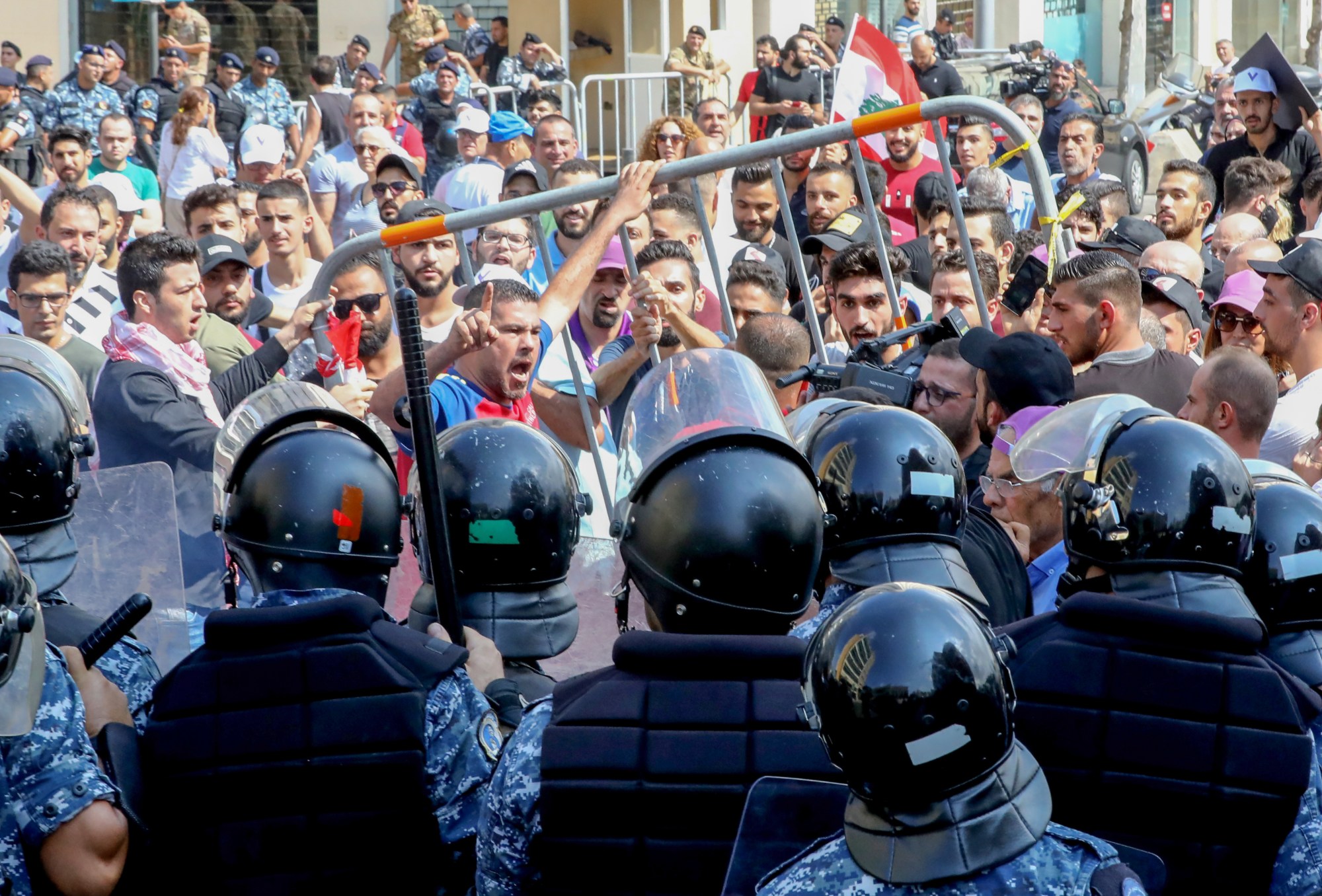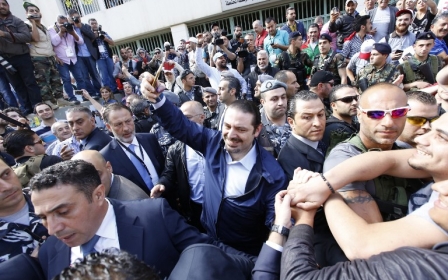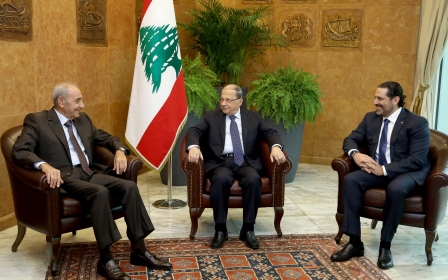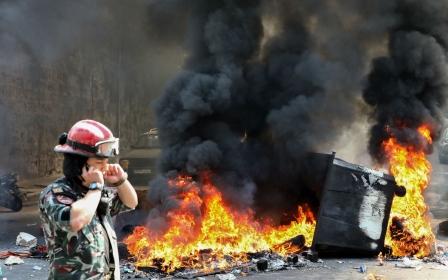Following Hariri model scandal, Lebanon's government gets questions, gives few answers
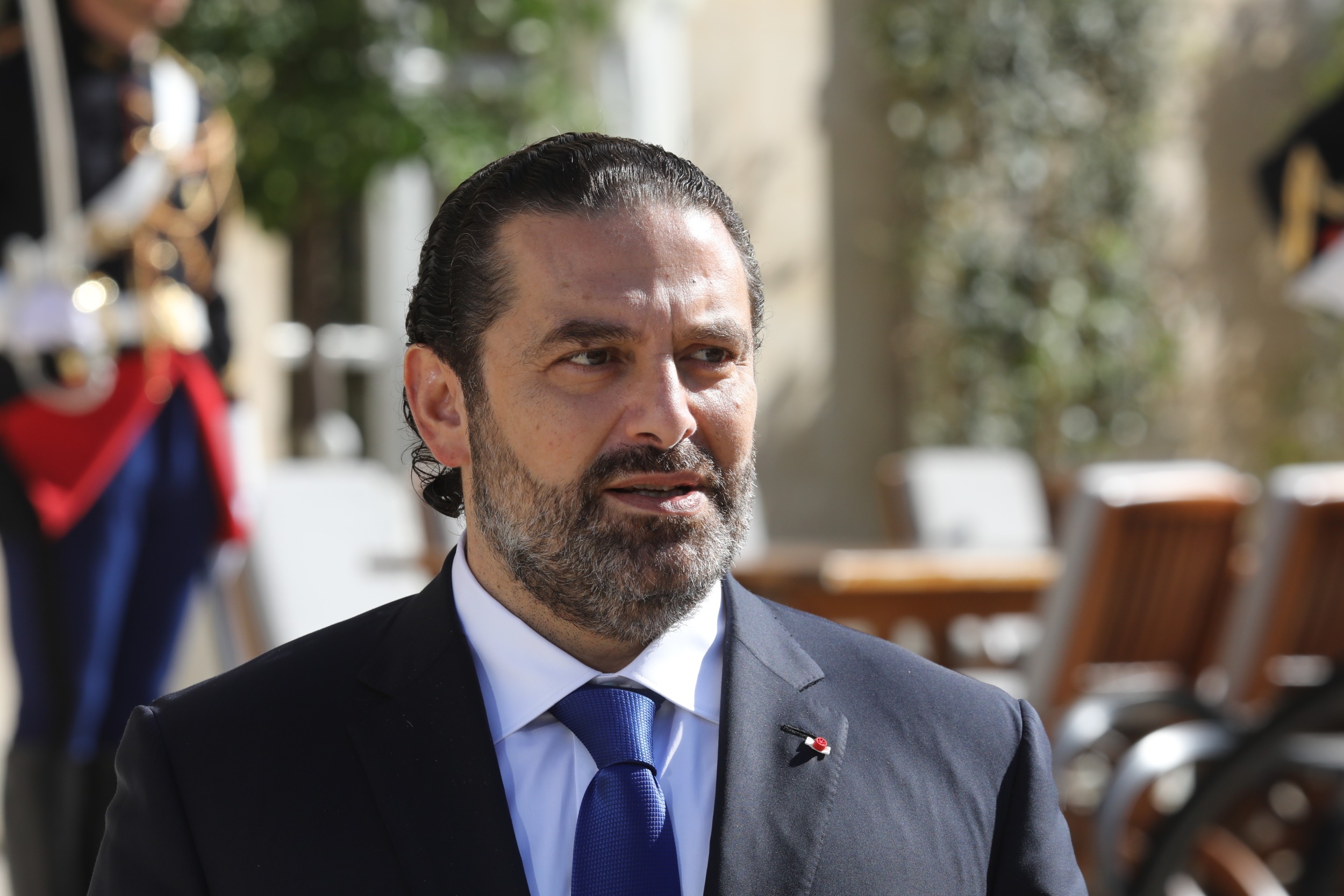
"Whatever campaigns are launched against me, and whatever they say, write, or do, I will keep working and not stop."
This was the first statement put out by Lebanese Prime Minister Saad Hariri in a tweet following a New York Times article revealing that the billionaire premier splashed some $16m on South African model Candice van der Merwe in 2013.
Van der Merwe stood trial in her home country in 2013 over the mysterious money transfer, but the benefactor at the time was identified merely as an "unnamed Arab admirer" whom she met at a Seychelles resort dubbed "a Playboy mansion for Arab princes".
Though the incident took place in 2013, when Hariri was not yet prime minister, the story came days after protests erupted across Beirut over the country's dire economic situation.
Needless to say, the story took over the internet.
Beyond the debate on the source and timing of the NYT bombshell and whether it is Hariri's right to spend his personal fortune as he pleases, it reopened discussions about the many employees Hariri owes money to today - including those from the recently defunct Future TV and Al-Mustaqbal newspaper, which stopped printing at the end of 2018 and went completely digital.
"Everyone's frustrated, everyone's anxious, especially given the economic situation," a media worker at a Hariri-funded platform told MEE. "[This is] on top of worrying about if or when we're going to get paid."
The scandal in Seychelles did not resonate well among them; however, they didn't think that it had an impact on their salary.
"It's nevertheless a bit of a slap in the face to see this news of spending $16m on something very questionable at a time where people haven't been getting their salaries for months."
The story also comes at a bad time for Hariri and the Lebanese government, as they continue to scramble to implement economic reforms to unlock a pledged $11bn in grants and loans from the international community.
The Lebanese premier is among the richest men in Lebanon, though he has struggled to keep his businesses afloat in recent years. In 2008, at the onset of the global economic crisis, Hariri was worth some $3.3bn. Though his value has plummeted by over 50 percent, he is still worth $1.5bn, according to Forbes.
All questions and no answers
Despite the protests and ongoing anxiety in Lebanon - with prospects of rising inflation at a time of minimal job security, prompting banks to hoard US dollars to prevent a further slip in the Lebanese pound-US dollar peg - the Lebanese government has insisted that there is substantial progress in the economy.
It has also branded protests and other calls to action a conspiracy.
Minister of the Displaced Ghassan Atallah, a member of President Michel Aoun's Free Patriotic Movement (FPM), slammed protesters and dissidents for criticising the president. "Trying to distort his reign to blame him for the economic problems is void," he tweeted. "Michel Aoun is Lebanon's salvation."
In late September, Lebanon's petrol-station workers went on a brief strike over the currency peg slip. Panic ensued and long lines of vehicles queued across dozens of petrol stations. Weakness in the two-decade-long currency peg affects businesses such as petrol stations as they have to pay for imported fuel in dollars, while customers pay in the local currency.
In response, Foreign Minister Gebran Bassil, Aoun's son-in-law, said the strike and other mobilisations online and offline over the economy were part of a conspiracy to destabilise Lebanon "to serve a foreign agenda".
Nour, a young social researcher at a startup initiative, told MEE said she is not convinced by how the government has responded thus far.
"Politicians are saying that everything is okay, but at the same time using the economy as a 'fear factor' to distract people from other issues," she said.
Like many of her peers among young working adults, she says she fears for job security.
Fear of censorship
As economic uncertainty continues to unfold in Lebanon, conversations abound about the situation, which banks supply dollars and who should be held accountable.
But such discussions are not without risk.
Amer Shibani, a former Future TV journalist now writing for Al-Mustaqbal Web and a social media manager for Future Movement MP Rola Tabsh Jaroudi - posted a since-deleted tweet from a Societe Generale de Banque au Liban (SGBL) branch.
Politicians are saying that everything is okay, but at the same time using the economy as a 'fear factor' to distract people from other issues
- Nour, social researcher
"No dollars at SGBL bank, not even at the registrar," he wrote, attaching a photo at the bank's branch. Shibani was then summoned to the Cybercrimes Bureau for the tweet, deemed slanderous.
Meanwhile, an FPM-affiliated lawyer issued a legal request to the general prosecutor to arrest, prosecute, and impose penalties on those producing "fabricated news... against the interests of the Lebanese state," "slandering the Lebanese state and its president, fabricating claims... and influencing people to withdraw their funds".
"The right to protest does not mean the right to insult, and freedom of the press does not mean the freedom to spread rumours that are harmful to the nation," President Aoun said at a cabinet session on Thursday.
These developments have angered human rights organisations in Lebanon. Lebanon researcher at Human Rights Watch (HRW) Aya Majzoub described the government response as "a campaign of repression" against people expressing their concerns about the economic situation.
Majzoub added that it is silencing "healthy - and even necessary - public debate about issues that impact the majority of Lebanese citizens".
She believes that this is part of the Lebanese government's trend of using criminal defamation laws to restrain any vocal opposition and "shield themselves from criticism".
Despite HRW and other human rights' organisations' concerns, it appears that the government will resort to the stick rather than the carrot approach - arguably to divert global attention away from the economic crisis.
Middle East Eye propose une couverture et une analyse indépendantes et incomparables du Moyen-Orient, de l’Afrique du Nord et d’autres régions du monde. Pour en savoir plus sur la reprise de ce contenu et les frais qui s’appliquent, veuillez remplir ce formulaire [en anglais]. Pour en savoir plus sur MEE, cliquez ici [en anglais].


